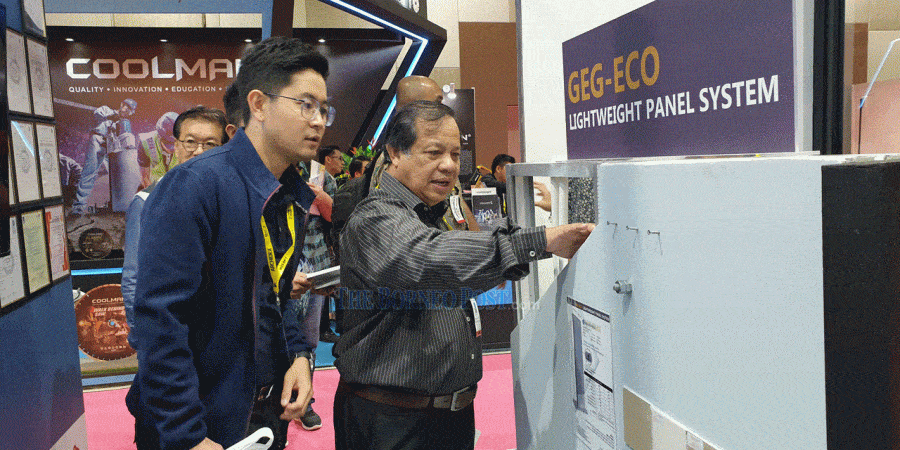Utilise IBS technology to build affordable houses

KUALA LUMPUR: The utilisation of Industrial Building System (IBS) technology is the key to reducing construction costs in Sarawak housing industry, says Housing Development Corporation (HDC) chairman Datuk Dr Abang Abdul Rauf Abang Zen.
Adding on, he points out that when the IBS industry achieves the economy of scale, total construction costs could be reduced and indirectly, this would realise the Sarawak government’s aspiration of having more affordable housing units for the people.
In this regard, he believes that the Sarawak government is playing a critical role in leading the transformation of the state’s construction industry, acknowledging that there are some industry players who are still resistant to using IBS technology in their operations.
“They are resistant as it (IBS technology) may affect their traditional way of doing business.
“Still, the state’s construction industry should embrace changes and innovations in their operations. It will be good for the housing industry and consumers in the long term.
“House prices are skyrocketing, in general, due to the fragmented supply chain, while some developers still prefer the conventional methods of building properties in the state,” Abang Abdul Rauf told reporters when met at the 20th International Architecture, Interior Design and Building Exhibition (Archidex) 2019 in Kuala Lumpur Convention Centre (KLCC), which concluded yesterday.
Adding on, he said if all stakeholders in Sarawak’s construction industry could heed the state government’s call on the utilisation of IBS technology, many Sarawakians would be able to benefit from the lower housing prices.
According to him, the stakeholders mentioned include property developers, contractors, architects, civil engineers and consultants.
Moreover, Abang Abdul Rauf said the IBS technology would be incorporated in the development of affordable housing projects, as announced recently in
Sarawak – adding that this could solve home ownership issues affecting the people, especially those from the B40 (‘Below-40 Per Cent’, or the lowest-earning segment of the population) group.
On June 25, Sarawak Chief Minister Datuk Patinggi Abang Johari Tun Openg had announced that five areas in Kuching would be developed into affordable housing project sites – namely Bako-Buntal, Sungai Maong-Segedup, Kampung Gita Baru, Kampung Senari and Lundu-Sematan.
“HDC is still in the midst of discussion with the state government to further promote IBS in the construction industry,” said Abang Abdul Rauf, admitting that direction towards IBS technology in the construction industry is still in an early stage.
Meanwhile, HKT Group chairman Dato John Hii observed that public acceptance of the IBS technology remained low in Sarawak, even amongst professionals in the construction industry.
For the record, HKT Group is partnering Sarawak government in promoting the use of IBS technology in building projects in Sarawak, through the sharing of technology and knowledge.
As part of the partnership, an IBS technology-based plant is in the planning – it is set to be built in Demak Laut.
This project is aimed at assisting Sarawak’s construction industry to shift towards using the more reliable and efficient IBS system.
In his remarks, Hii said the IBS technology had been making great advancements over the years, in that it was no longer associated with the usage of sub-par construction materials.
“People tend to think that the main benefit of IBS is that a construction project can be completed within a short timeframe, but at the expense of quality. This is not true,” he stressed.
Hii said GE Tech Industry Sdn Bhd, a company under HKT Group, had been accredited and certified by several international bodies for their IBS technology, which complied with world-class standards in terms of product durability and efficiency.
“As most of the building panels and materials are assembled at factories rather than on-site, this would bring down the total construction costs which, in turn, meet the policies of the state government to build more affordable houses in Sarawak within a short time,” said Hii, pointing out that by using IBS technology, less manpower would be needed.
Meanwhile at the exhibition, GE Tech Industry received the ‘New Product Award’ for its GEG-ECO Lightweight Panel System – its signature IBS product.

